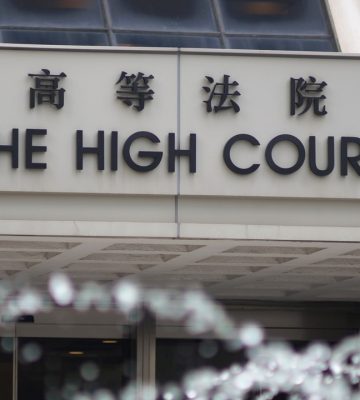On 5 August 2019, the Asian Business Law Institute organized a session as part of The Big Deal: Managing Disputes in Asia series held in Singapore on the sidelines of the signing of the Singapore Convention on Mediation on August 5, 2019.
The Big Deal was recorded by Channel News Asia as part of a television program titled Deal & Dispute Management For Asian Businesses. ABLI’s section of the TV program commences at the 14:08 minute mark.
Transcript
Mr Nish SHETTY, Partner, Clifford Chance Asia
The panel is all about enforcement and recognition of judgments in Asia. To kick this off I’m going to ask Adeline to talk about the project that ABLI has embarked upon.
Dr Adeline CHONG, Associate Professor, School of Law, Singapore Management University
The ABLI foreign judgments project, so the project examines the recognition and enforcement of foreign judgement rules in 15 jurisdictions the 10 ASEAN member states, and 5 of ASEAN’s major trade partners.
The laws on foreign judgments in the region range on a spectrum. At one end, you’ve got Indonesia and Thailand, which do not recognize and enforce foreign judgments, except for in very small pockets of the law. In which the foreign judgments may be tendered as evidence, but its effect may not be conclusive.
Justice Anselmo REYES, International Judge, Singapore International Commercial Court
In 13 out of 15 major Asian jurisdictions, SICC [Singapore International Commercial Court] judgments are likely to be recognised and enforced, regardless, whether or not a treaty exists, just on the basis of the civil procedure laws.
A new generation of judges is coming to the fore in Thailand, and that there are likely to be developments in relation to the recognition and enforcement of foreign judgments.
In terms of Indonesia, the problem is actually a provision from Dutch colonial times that essentially says, literally says, foreign judgments are not to be recognized and enforced. But the Dutch judges have had managed to interpret the restriction away. So hopefully, the contributor of the Indonesian chapter, has suggested that perhaps developing Dutch jurisprudence in light of the comments of Indonesian scholars, there may be light at the end of the tunnel. So, I’m optimistic all around for all 15 jurisdictions.
Justice Vichai ARIYANUNTAKA, Senior Judge, Intellectual Property & International Trade Court
In Bangkok, the picture is not that gloomy, is that new technique from the petitioners will use the enforcement of the foreign judgment as an evidence in the merit of the case itself.
London, New York, and now, maybe Singapore, or Hong Kong, used to be, or still is, the venue for international commercial litigation. And who are we, to promote trade and investment, not to look at the decision of those very, very reputable forum in the world commerce? So, this is good public policy to enforce foreign judgment, if you can prove merit of the case.
Mr Nish SHETTY
Phillip, I’d like to talk about the cost in sort of business terms, of not having greater clarity in terms of recognition and enforcement of judgment.
Mr Phillip JACOBS, IANUA Market
The doing business statistics which the World Bank regularly shows, like the top number 1 ranking for Singapore and enforcing contracts, both with quality and speed. Taking a normal first trial lengths is like 18.4 months, it’s very much driven to be honest with China and India just because its GDP weighted, so that’s like for the Asian region, and if you do Singapore, Singapore just takes 5.5 months. Compared to Europe how long does an executorial procedure takes under the Hague convention and compared to like the normal first trial lengths so made the regression analysis. It’s like 9 months. So, 9 months plus the 5 months of Singapore, gets to fourteen months which is shorter than the 18 months.
It shows you how much you can achieve by adhering already to the Hague convention that this region can benefit quite significantly about it, and the interesting bit is also that the trial length here is significantly shorter than in English courts, which actually helps to fill the gap of the longer executorial procedures.
Justice Anselmo REYES
So, this comes back to the point just made that if we wait around for parties to sign up to the Hague Convention, the 2019 Hague Convention, it’ll take a few years. And if you’re really interested, in attracting FDI, if you’re really interested in taking advantage of lower transaction costs then the importance is to do something here and now. It may not be effective 100%, but there must be some solutions at least in the short term.
I think the audience here is very much roped into the task of marketing recognition and enforcement of judgments, marketing the Hague convention, I suggest you make it a part of your cocktail conversation. Whenever you’re talking with someone you say, “well what do you think about the Hague Convention the 2019 Hague Convention, you don’t know about it? Oh, what a pity”. You should, make it a part of the daily language for the reasons that Philip has identified.
Mr Nish SHETTY
Meng, from a Chinese perspective, the positives that we can all take away?
Dr YU Meng, Founder, China Justice Observer
The future is very bright, it’s bright for China and most of its major trading partners. And for group 2 countries including Singapore, South Korea, United States, and Germany, their judgments have already been recognized in China based on reciprocity so no problem with that.
Apparently, the door is already open, we just need more cases to go through the door. Asia needs more cases by the same token, we need more cases to help the litigants build confidence in the courts, to have more reasonable expectations, and eventually promote the multilateral trade and investment.
Mr Nish SHETTY
Ladies and Gentlemen, we’ve come to the end of our presentation. In Asia we have a heterogeneous area, when one talks about Asia as if it’s a singular whole, one clearly doesn’t understand the differences that lie. But within those differences there lie opportunities to bring harmonization of laws, certainly among commercial laws. So, thank you for your attention, please thank the panellists.






